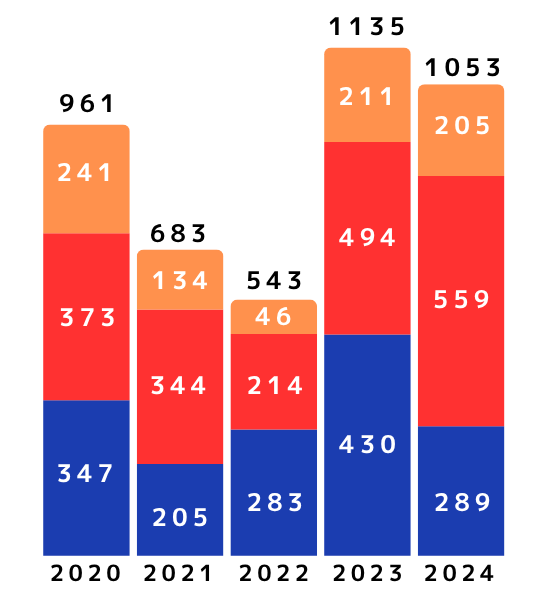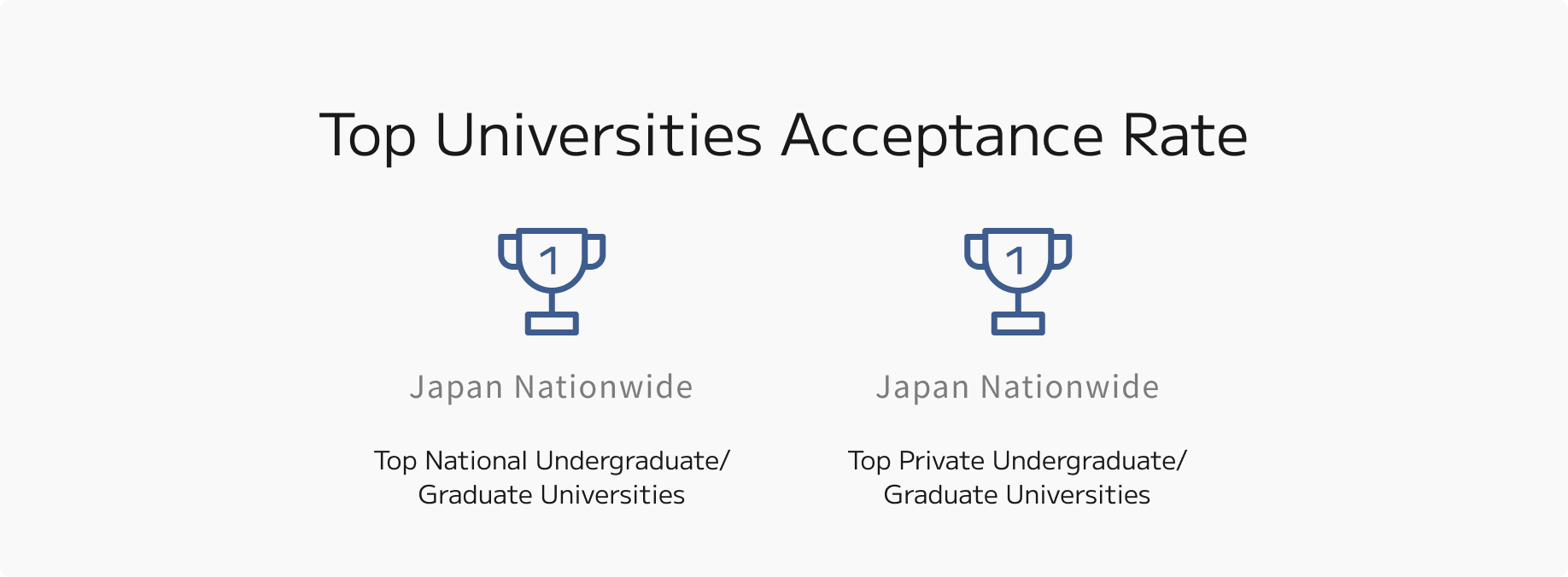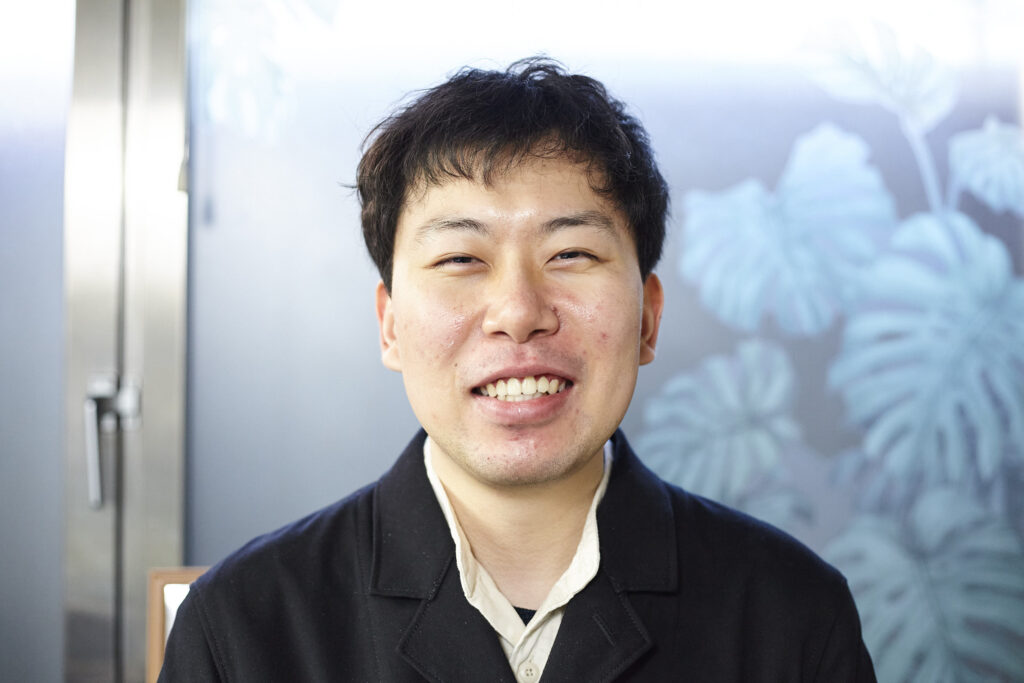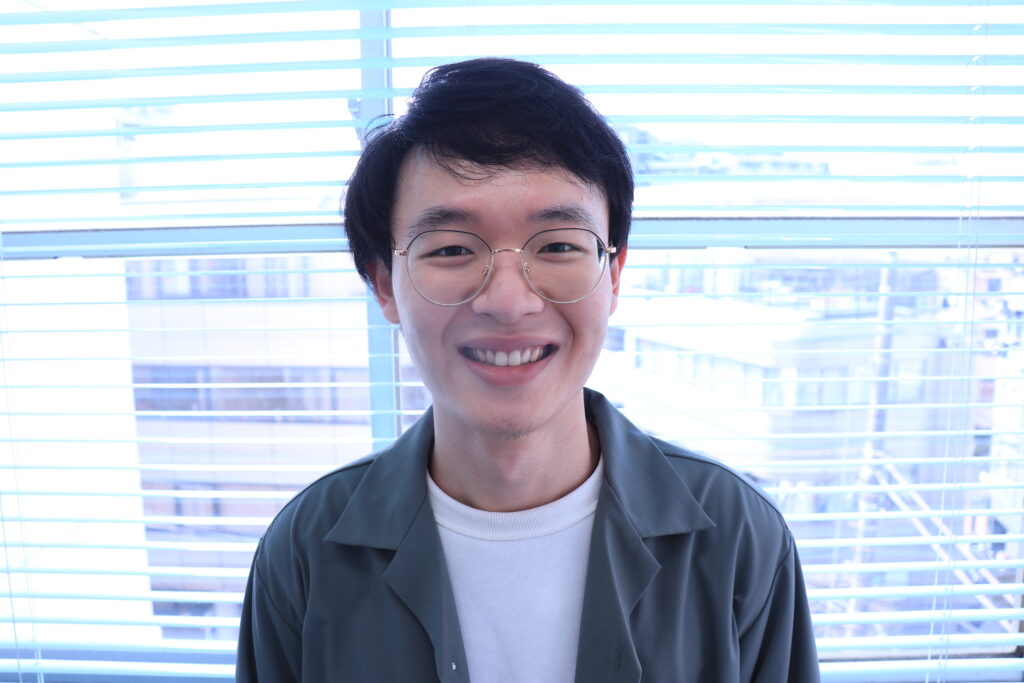Reasons to Choose Sendagaya ‐ Reason 1
Reasons to Choose Sendagaya ‐ Reason 1
Higher Education Achievements
After being founded nearly 50 years ago in 1975, Sendagaya Japanese Institute Group has provided Japanese language education and Japanese language teacher training for international students, business associates, and general foreigners. Over 25,000 Japanese language students have been produced and are now playing an active role worldwide. Approximately 1,000 of our graduates pursue further education in prestigious Graduate Schools, Universities, or Vocational Schools in a year. We are proud of our unrivaled higher education achievements in advancing students to Graduate Schools, Universities, or Vocational Schools.
Acceptance Achievements to Universities/Graduate Schools/Vocational Schools
From the last 5 years
Acceptance Achievements to Universities/Graduate Schools/Vocational Schools
From the last 5 years

* During 2021 and 2022, the number of students decreased compared to previous years due to entry restrictions caused by the COVID-19. Consequently, the number of students who went to higher education also decreased.

Higher Education Achievements by School Name
University
National Schools
Hokkaido University, Nagoya University, Osaka University, Yamagata University, Akita University, Fukushima University, Niigata University, Gunma University, Shinshu University, Yamanashi University, Shizuoka University, Gifu University,
Mie University, Hiroshima University, Miyazaki University, Nagasaki University, Kagoshima University, Kyushu University, University of the Ryukyus, The University of Electro-Communications, Takasaki City University of Economics, Yokohama City University, Tokyo Metropolitan University, Osaka Metropolitan University, Toyohashi University of Technology, Kyoto Institute of Technology, others.
Private Schools
Teikyo University, Teikyo Heisei University, Waseda University, Keio University,Sophia University, Tokyo University of Science, Meiji University, Aoyama Gakuin University, Rikkyo University, Chuo University, Hosei University, Kansai University,
Kansei Gakuin University, Ritsumeikan University, Meiji Gakuin University, Nihon University, Toyo University, Senshu University, others.
Graduate School
National Schools
Tokyo University Graduate School, Tokyo Institute of Technology Graduate School, Nagoya University Graduate School, Hokkaido University Graduate School, Osaka University Graduate School, Tsukuba University Graduate School, Saitama University Graduate School, Kobe University Graduate School, Chiba University Graduate School, Kanazawa University Graduate School, Saga University Graduate School, Yokohama City University Graduate School, Hokkaido University of Education Graduate School, others.
Private Schools
Waseda University Graduate School, Keio University Graduate School, Sophia University Graduate School, Meiji University Graduate School, Aoyama Gakuin University Undergraduate School, Rikkyo University Graduate School, Hosei University Graduate School, Nihon University Graduate School, Komazawa University Graduate School, others.
Vocational School
Tokyo Institute of Tourism, Sundai Travel & Hotel College, HAL Tokyo College, Nihon Kogakuin College, Nihon Kogakuin College Hachioji Campus, Japan Electronics College, Yamanote Cooking & Confectionery College, Bunka Fashion College, Tokyo Animation College, Hiko Mizuno College of Jewelry, Yomiuri College of Car Mechanic, Nakano School of Business, Waseda-Bunri College of Arts and Sciences, Shibuya Institute of Foreign Languages, Tokyo Communication Arts, Gregg International College, CAD Drafting Technical College, others.
Voices From Our Graduates

Chiba University, Faculty of Engineering
Zhang Shidong (China)
Sendagaya Japanese College
November 2020 ~ March 2022
Former school: He Bei Experimental Middle Scool

Osaka University, Graduate School of Law and Politics
Chen Haoran (China)
Sendagaya Japanese Institute
December 2020 ~ March 2022
Former school: Beijing University of Chemical Technology
Major: Law
Reasons to Choose Sendagaya
1
Higher Education Achievements

Sendagaya Japanese Institute Group
Reasons to Choose Sendagaya
1. Higher Education Achievements
3. Student Support by International Staff
Student Life
© 2023 Sendagaya Japanese Institute Group
Tel: +81-3-5337-7001 Fax: 03-5332-6696
Weekdays 8:30am~5:30pm (Japan time)

Sendagaya Japanese Institute Group
Tel:+81-3-5337-7001
FAX:03-5332-6696
Weekday 8:30am~5:30pm (Japan time)
© 2023 Sendagaya Japanese Institute Group
